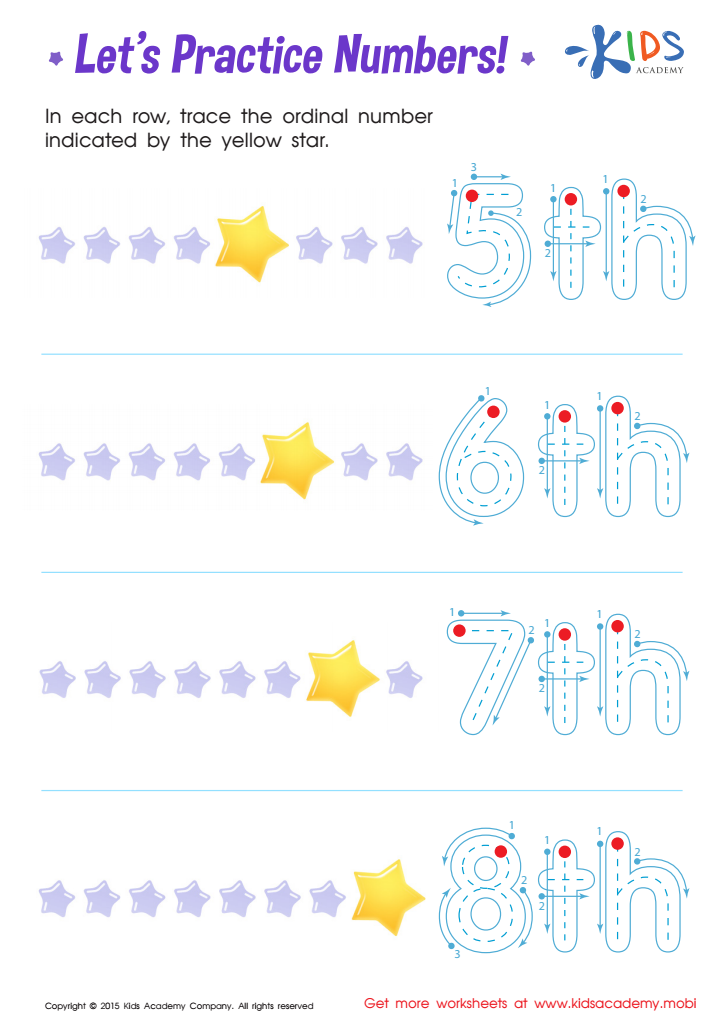Counting skills Normal Math Worksheets for 6-Year-Olds
84 filtered results
-
From - To
Enhance your 6-year-old's counting skills with our engaging Normal Math Worksheets! Designed specifically for early learners, these worksheets focus on foundational counting concepts, helping children develop numerical understanding and confidence. Each activity encourages interactive learning through colorful illustrations and fun exercises tailored to keep young minds engaged. From counting objects to recognizing numbers, these worksheets stimulate cognitive growth while making math enjoyable. Perfect for at-home practice or classroom reinforcement, our resources support your child’s journey towards mathematical proficiency. Join us in making counting exciting for your little ones! Explore our collection of printable worksheets today for enriching learning experiences.
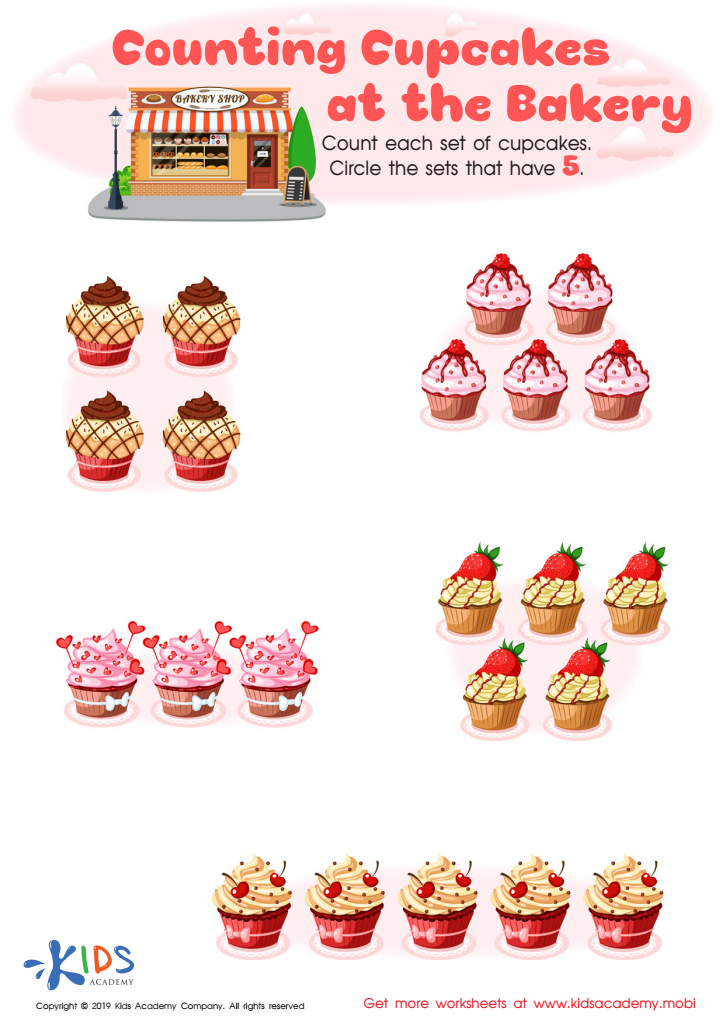

Counting Cupcakes Worksheet
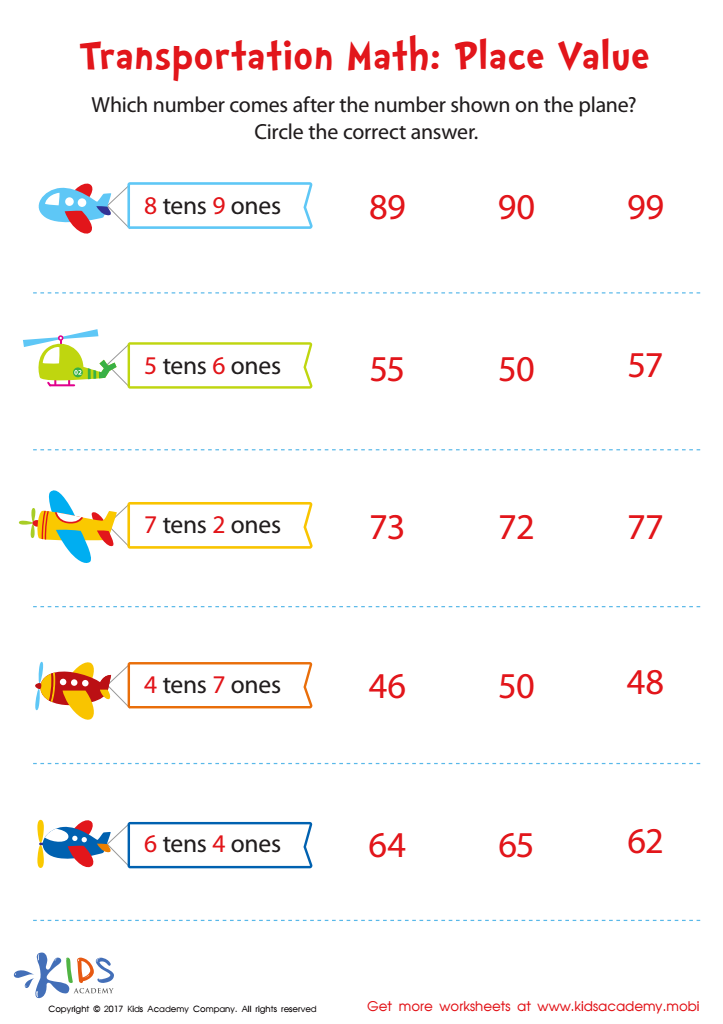

Transportation Math Printable
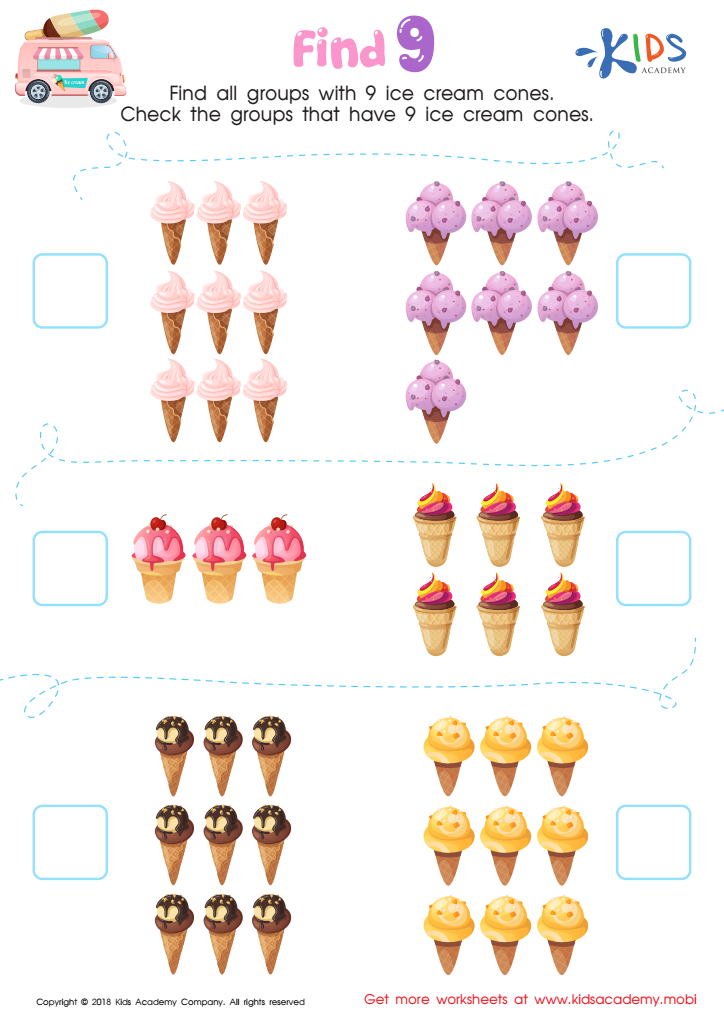

Find 9 Worksheet
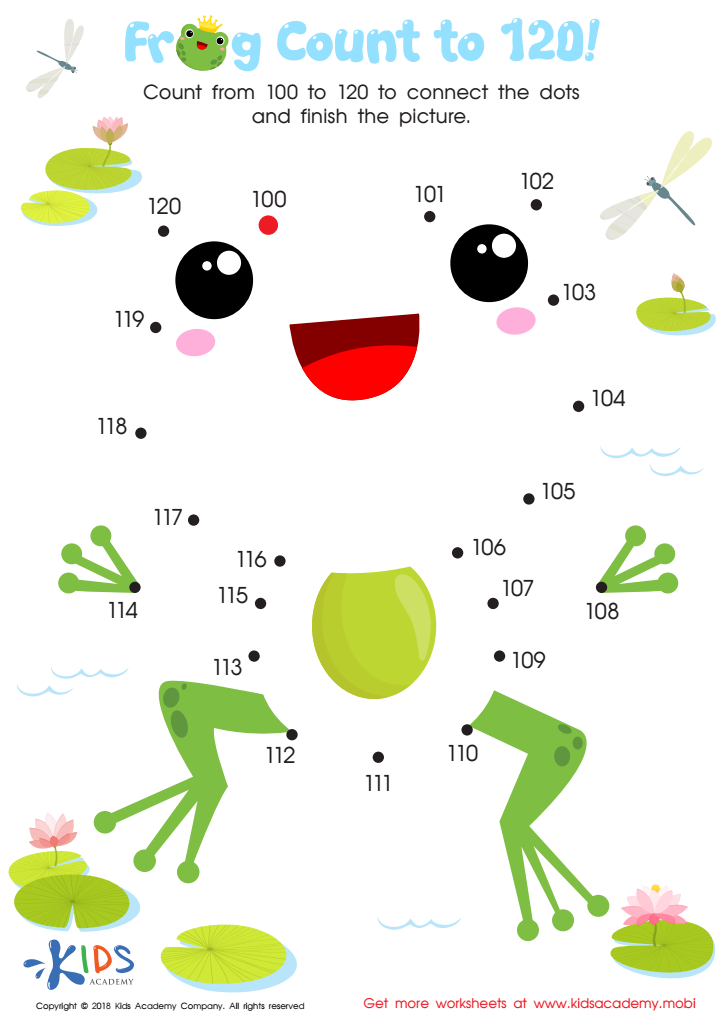

Frog Count to 120 Worksheet
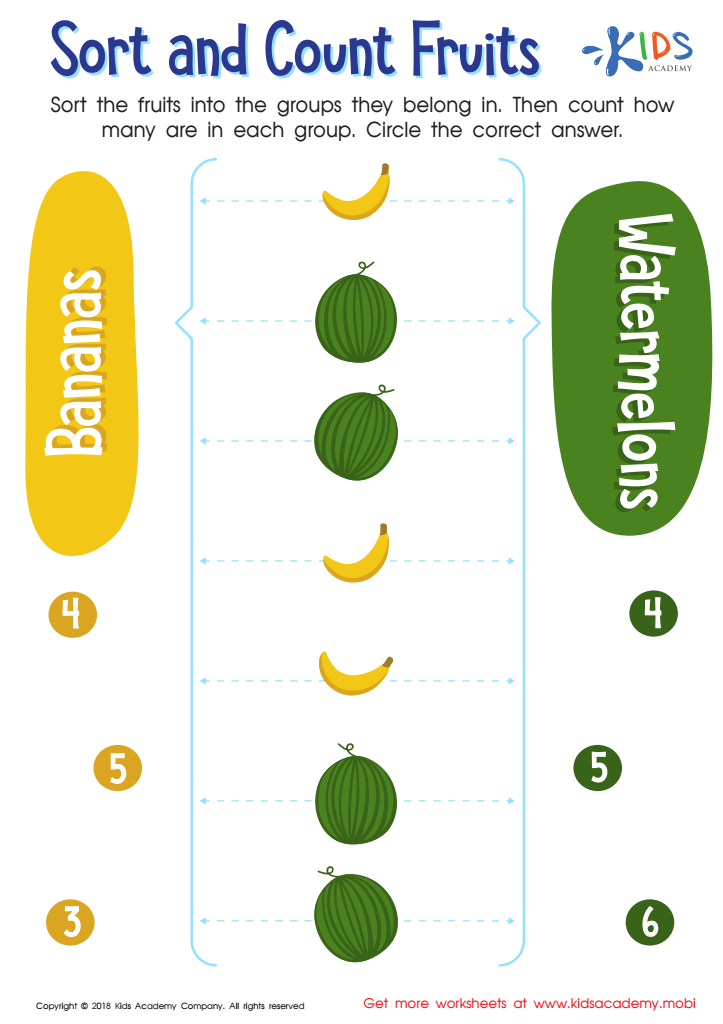

Sort and Count Fruits Worksheet
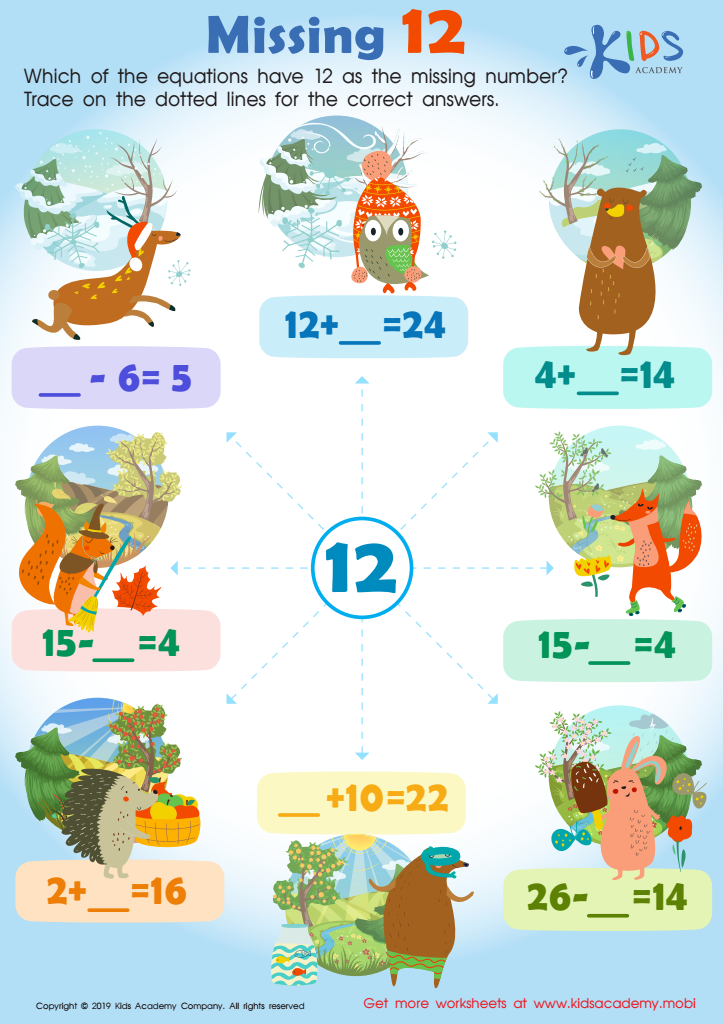

Missing 12 Worksheet


Sort and Count to the Moon Worksheet
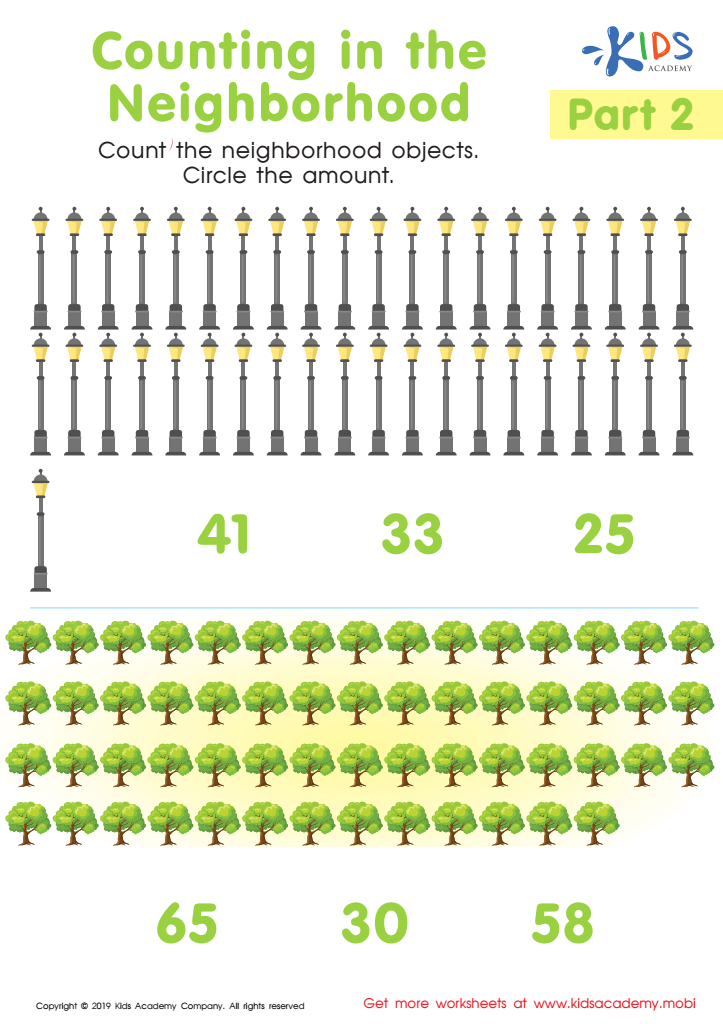

Counting In The Neighborhood Part 2 Worksheet
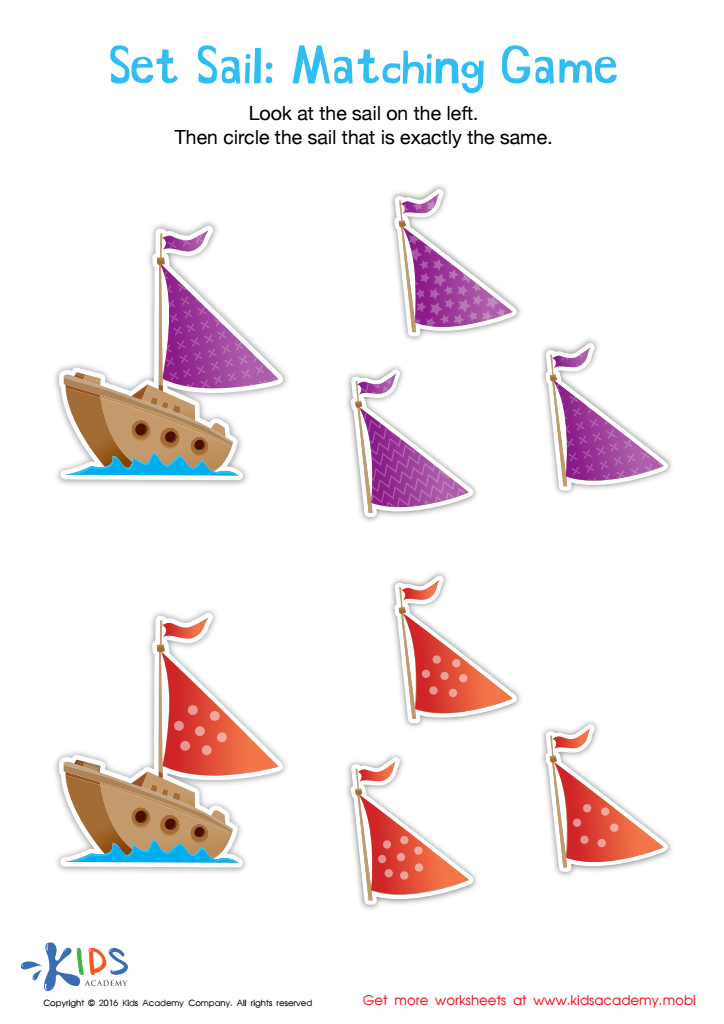

Set Sail Worksheet
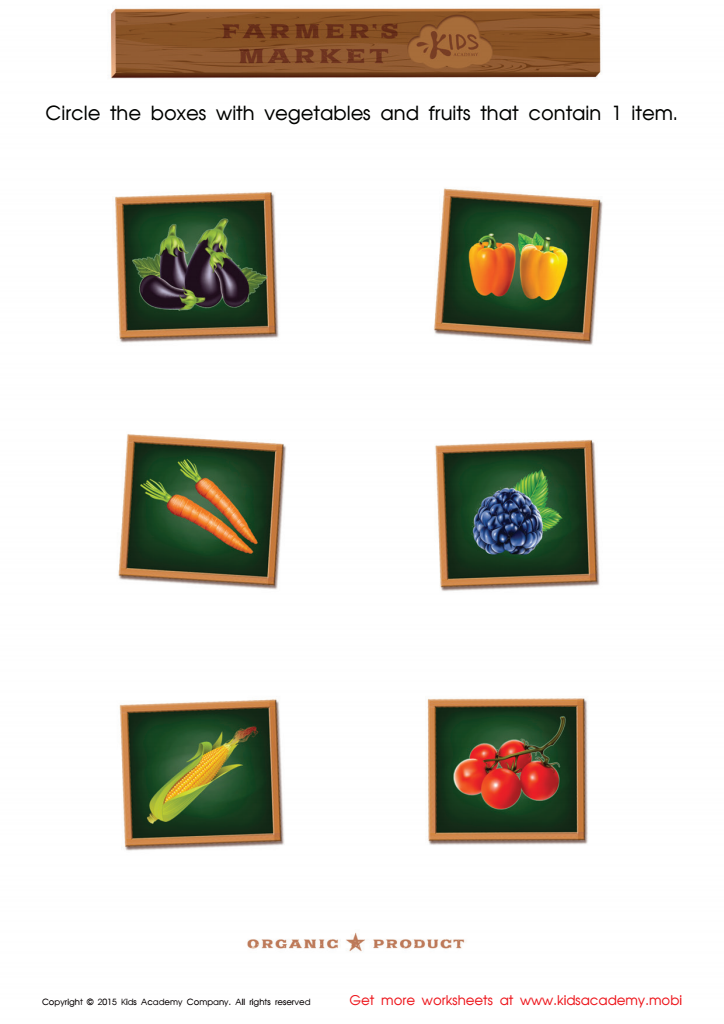

Count and Match Boxes with Vegetables
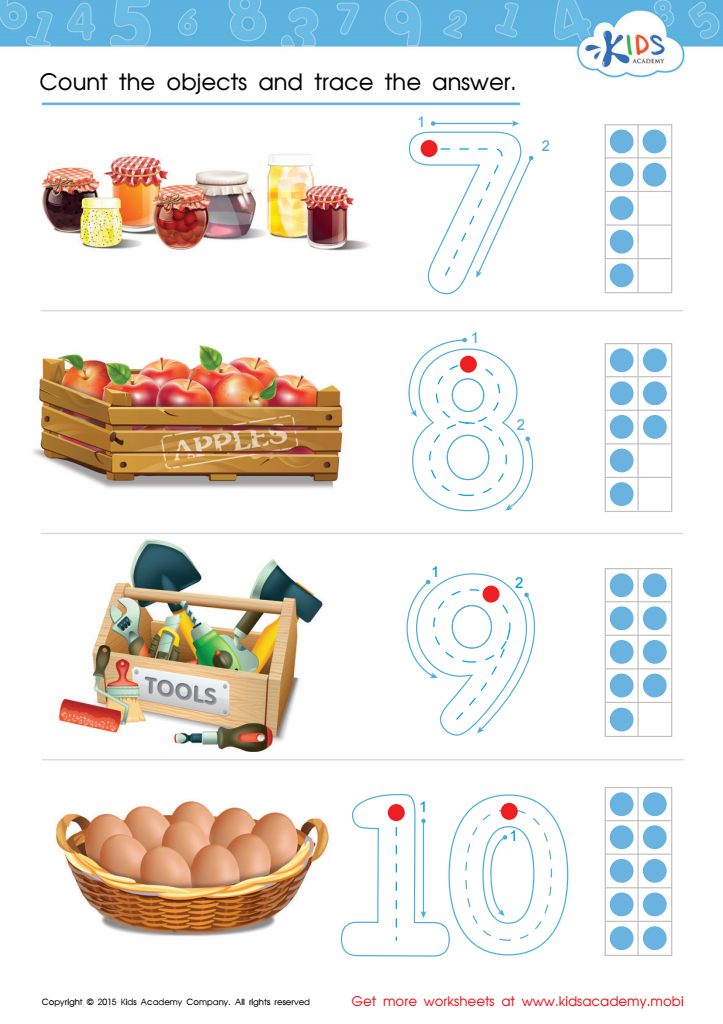

Count and Trace 7 – 10 Worksheet
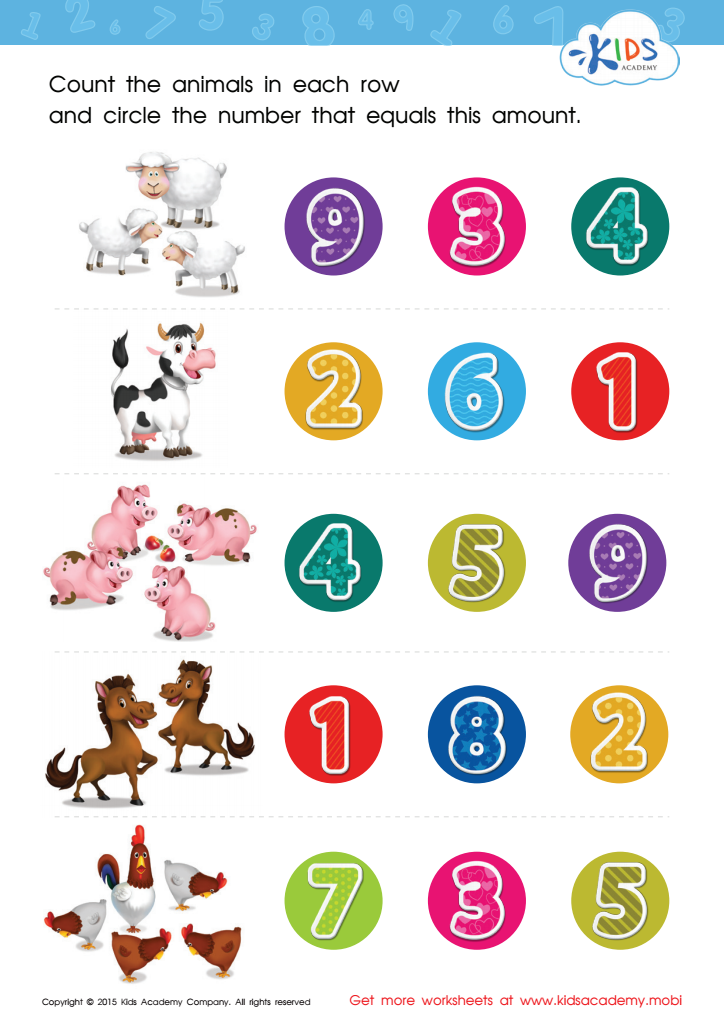

Count and Match 1 – 5 Math Worksheet
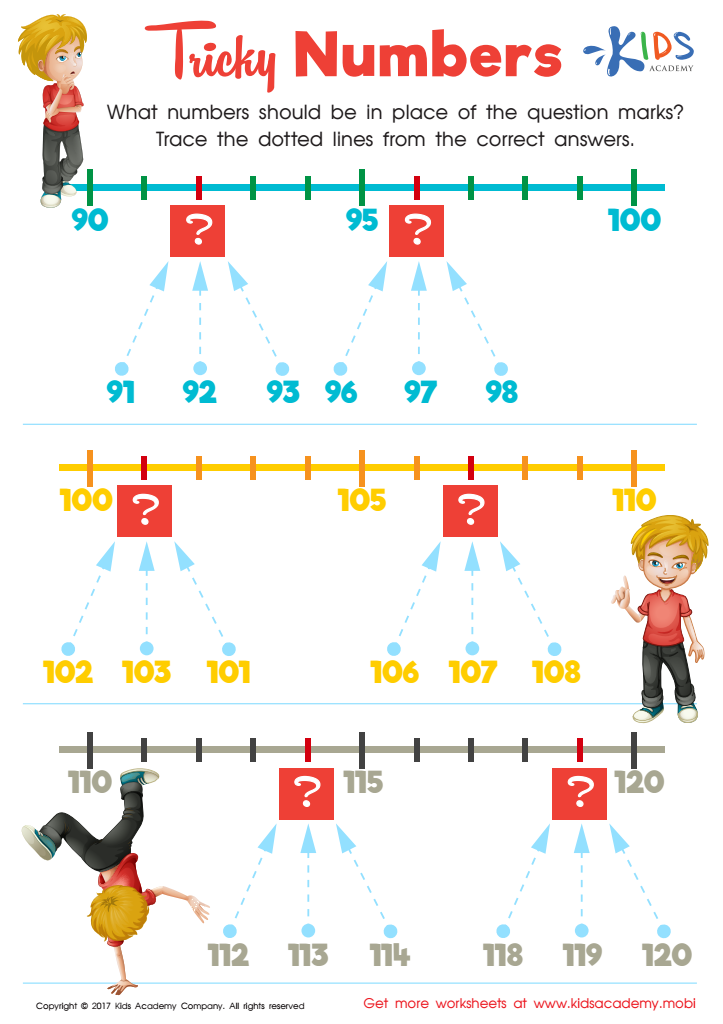

Tricky Numbers Worksheet
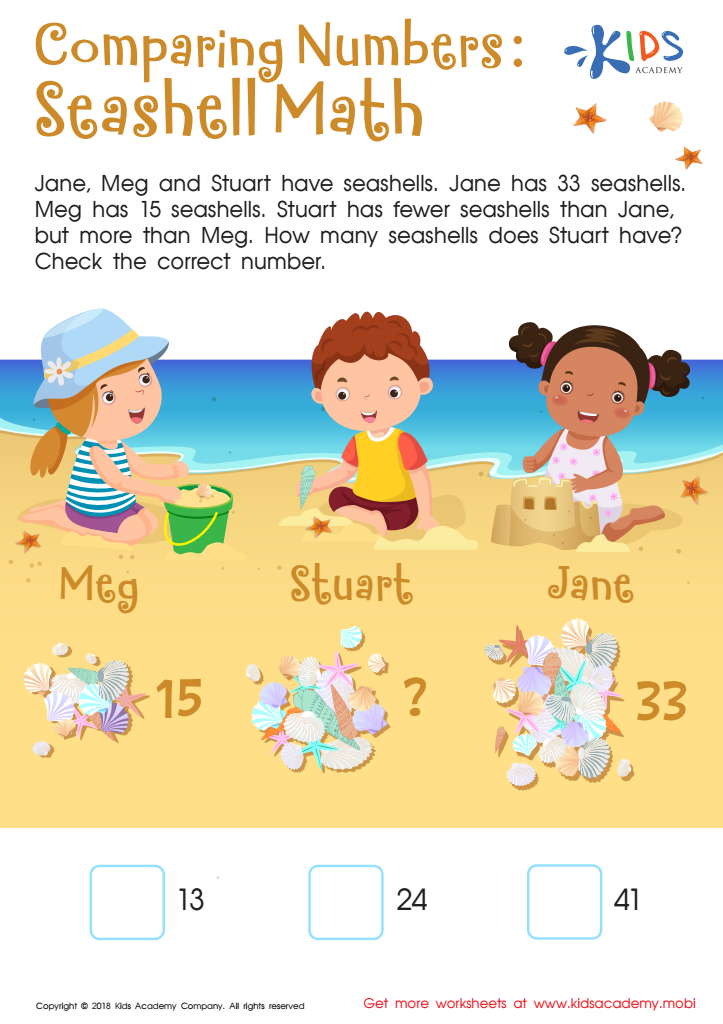

Seashell Collectors Worksheet
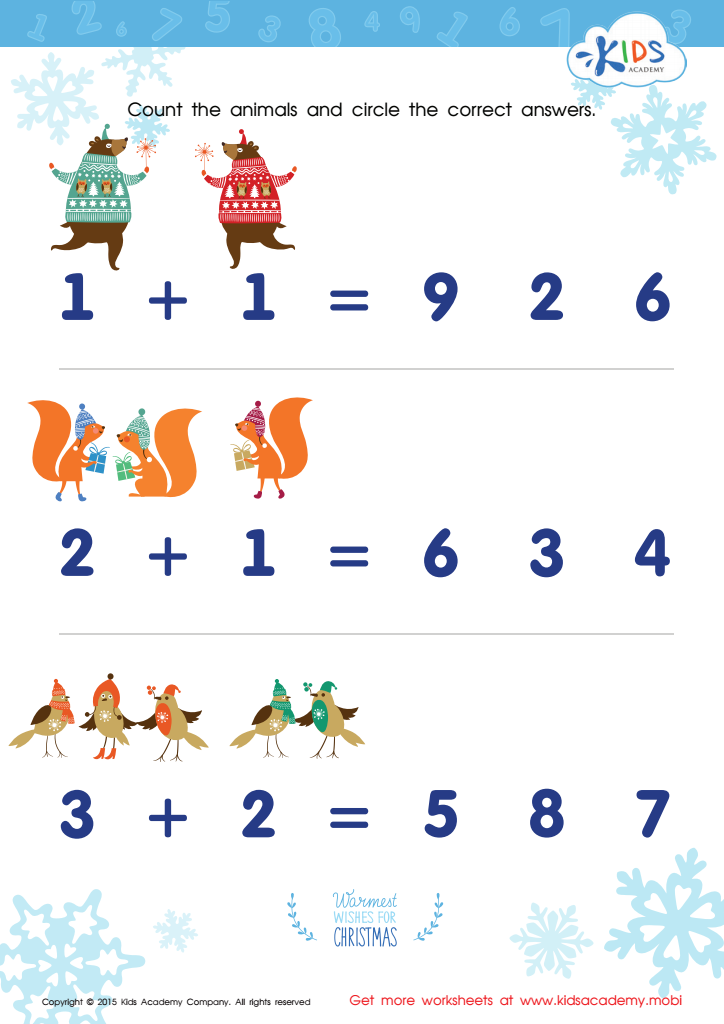

Count Funny Animals Worksheet
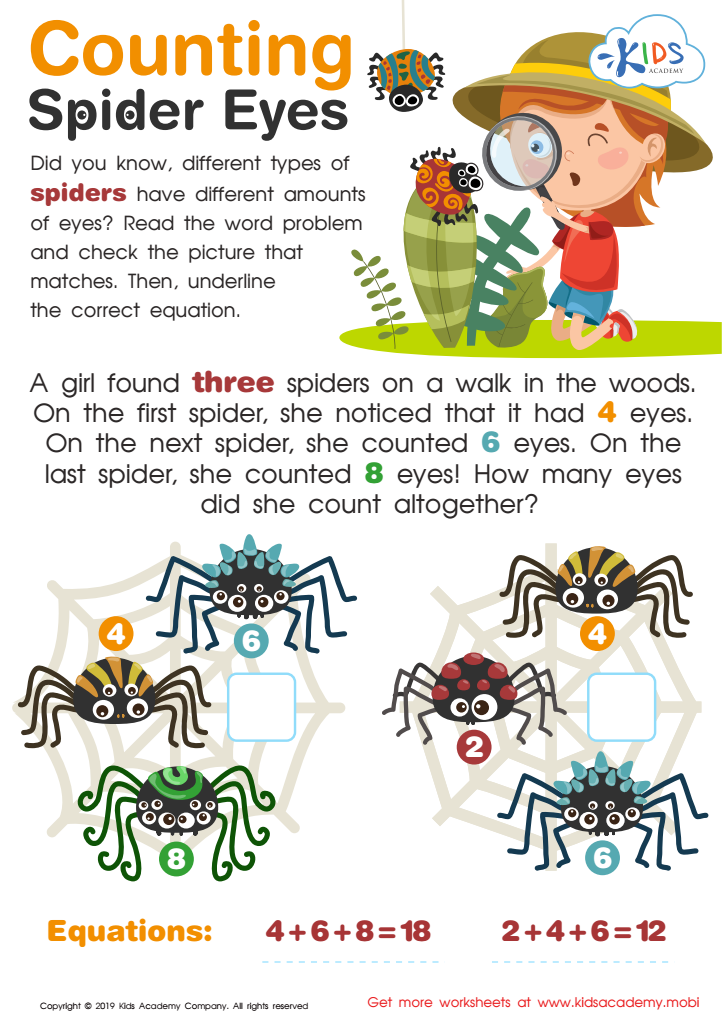

Counting Spider Eyes Worksheet
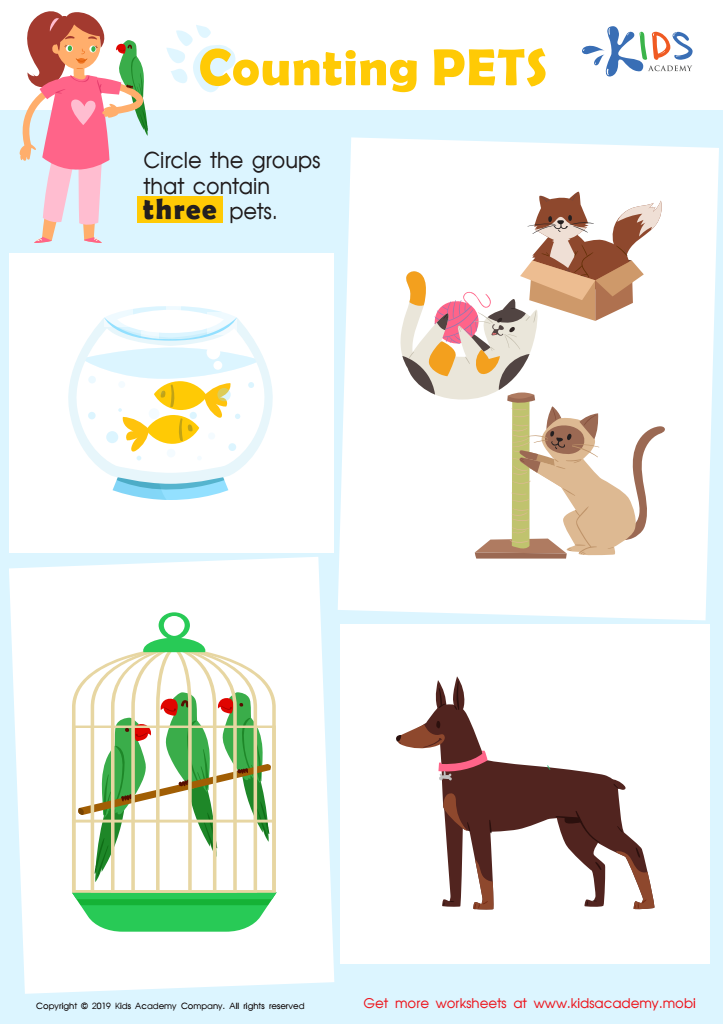

Counting Pets Worksheet
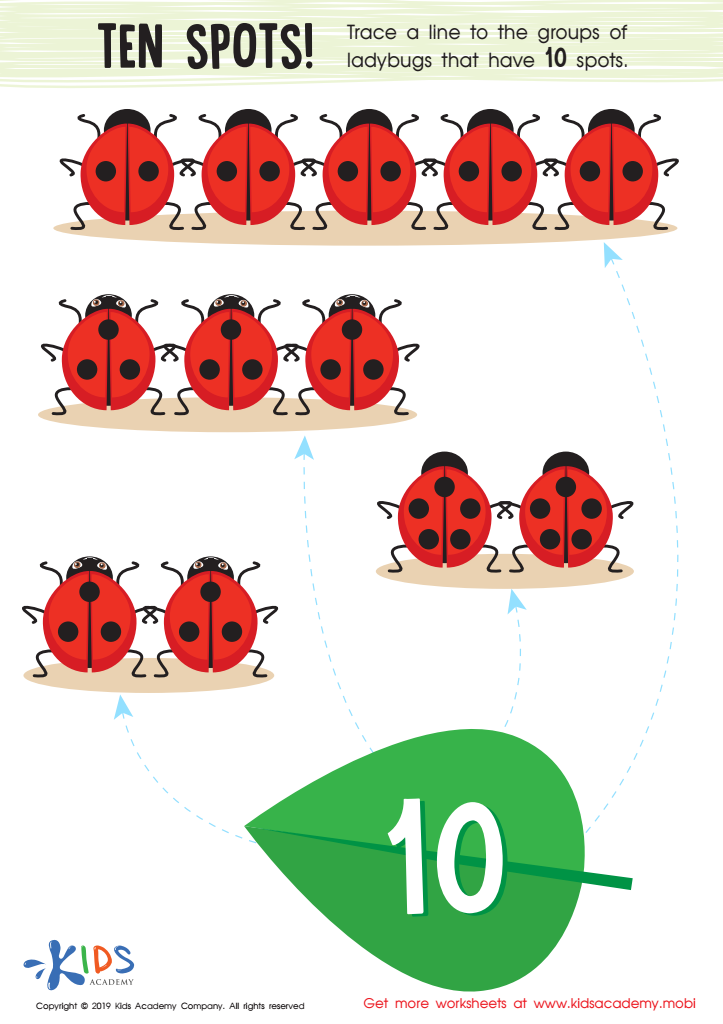

Ten Spots Worksheet
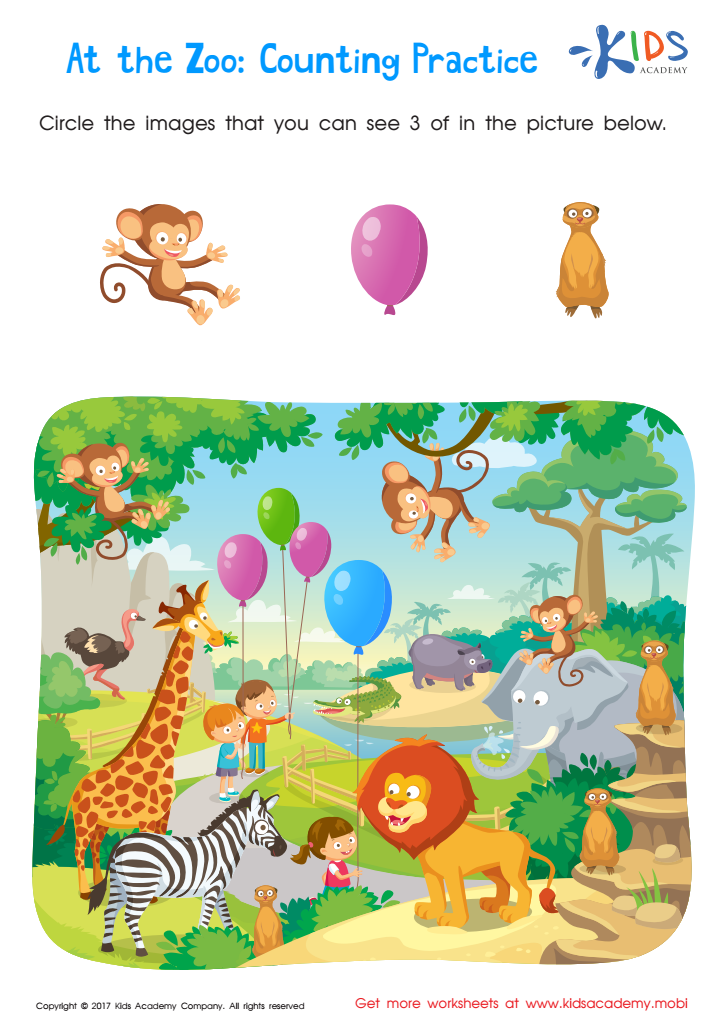

At the Zoo: Counting Practice Worksheet
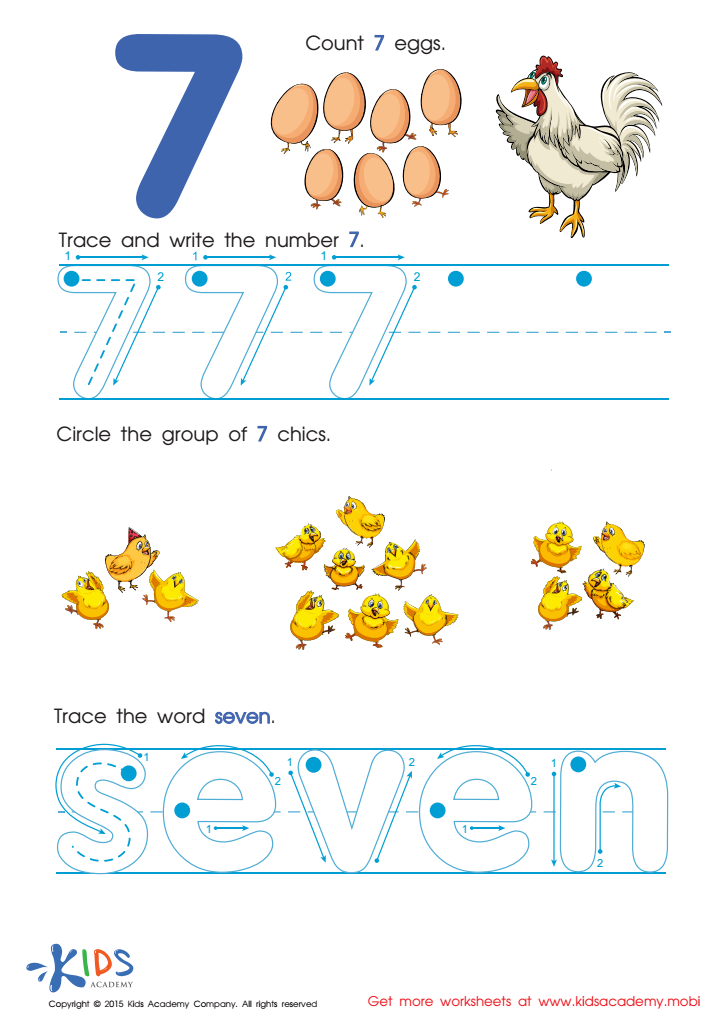

Trace And Write Number 7 with Fun Worksheet
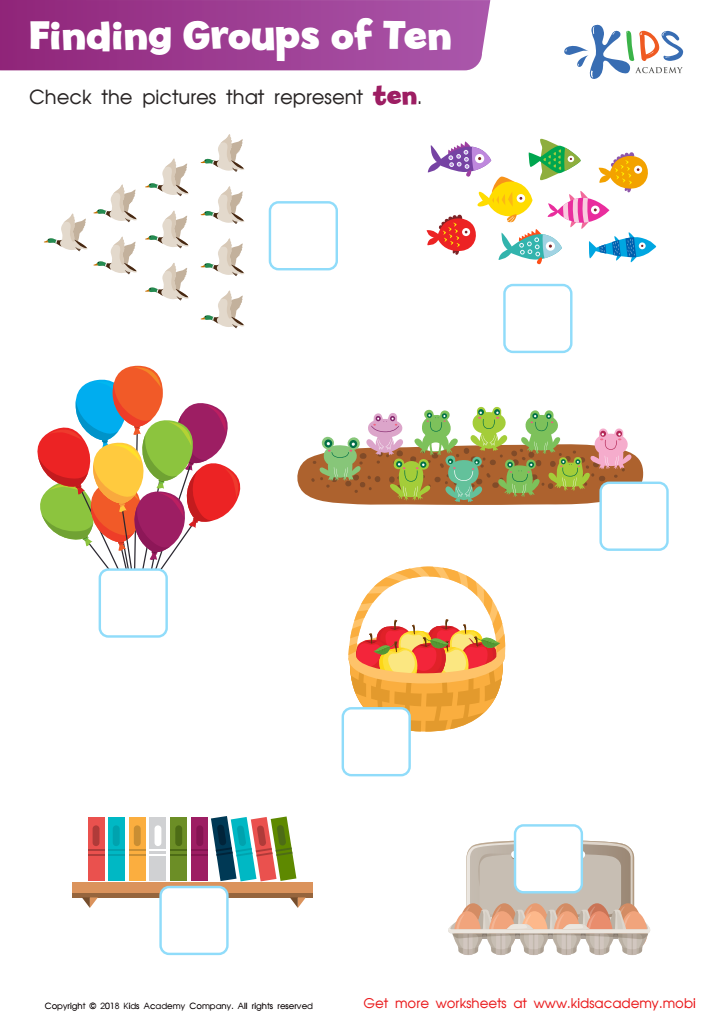

Finding Groups of Ten Worksheet
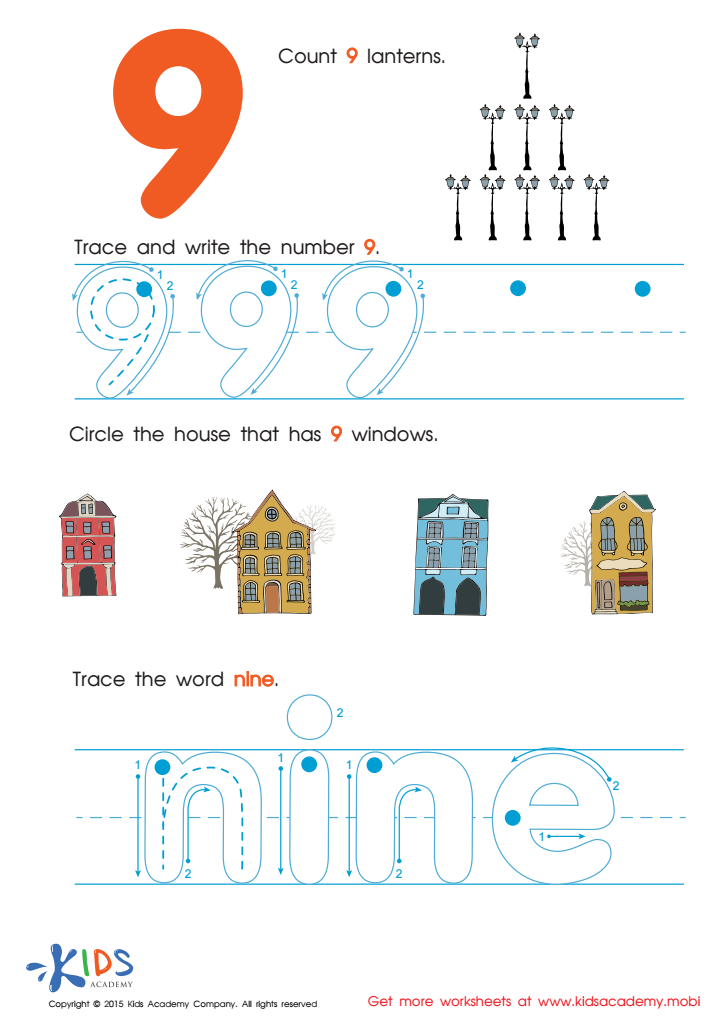

Tracing And Learning to Write Number 9 Worksheet


Adding Flower Petals Worksheet
Counting skills form the foundation of early math education and are crucial for six-year-olds as they enter primary school. At this age, children are not only learning to count, but they are also developing critical thinking and problem-solving abilities. Strong counting skills foster number sense, enabling children to understand patterns, quantify objects, and comprehend relationships between numbers, which are essential for more complex mathematical concepts later on.
Moreover, proficient counting abilities enhance a child's confidence and willingness to engage with mathematics. This encourages a positive attitude toward learning, reducing anxiety around math as they progress in their education. Parents and teachers who prioritize counting skills help lay the groundwork for future mathematical success, impacting performance in subjects well beyond basic arithmetic.
Additionally, counting activities can be fun and interactive, allowing for quality bonding time, whether through games, songs, or everyday activities. Engaging children in counting fosters not only academic growth but also enhances cognitive and social skills, preparing them for a wider spectrum of learning experiences. By emphasizing counting skills at this young age, educators and parents can cultivate a lifelong appreciation for math and its practical applications in everyday life.
 Assign to My Students
Assign to My Students
